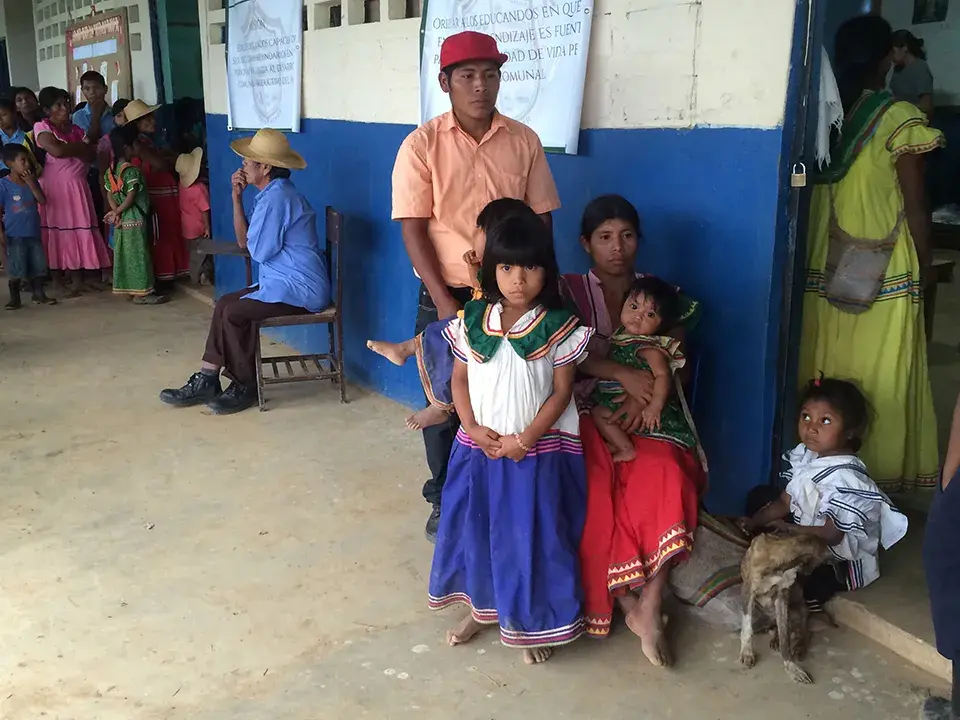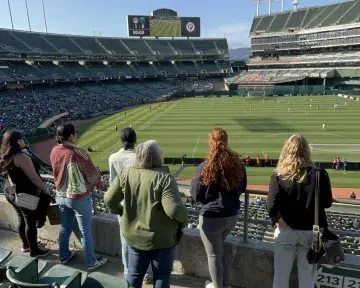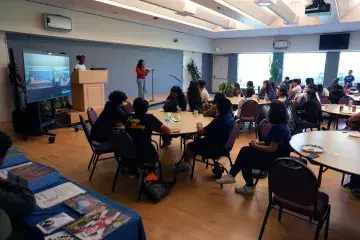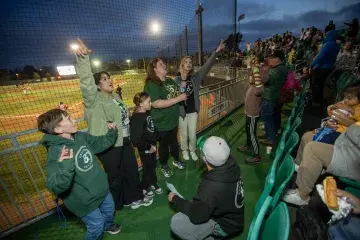How Going on a Medical Trip to Panama Changed My View of Health Care

Student Voices is a blog series written by SMU students. If you have an idea for a story, reach out to Sasha Solomonov at ssolo@samuelmerritt.edu. This article is written by ELMSN-FNP student Nadine Huerta.
“Think Global, Act Local” is a motto I’ve operated under ever since I heard the term as an undergrad. I am mindful of how I can contribute to making the world a slightly better place by influencing change around me. It’s my experience with small acts of human kindness that have ultimately steered me in the direction of healthcare.
I’ve always admired people’s global humanitarian heroics and aspired to take that leap. But as someone with travel anxiety who can count the times I have left the country on a single hand, I questioned whether that could ever be me. “What role could I possibly serve in a place that I am not familiar with?” I asked myself. That was until I decided to pop my own bubble of comfort and board a flight to Panama.
For each of the past six years, Samuel Merritt University (SMU) has sent two medical trips to the small, remote village of Batata in central Panama; one in April and one in August. Students from different health professions set up and operate a clinic to provide care to an indigenous population. On a recent trip, I joined 17 students from SMU’s nursing, physician assistant, and physical therapy programs as well as several faculty members and alumni.
We arrived in Batata after several hours traveling in the back of pickup trucks that navigated the rugged terrain to deliver us to what would become our home for the next three days. We converted a small school in the community into our living and dining quarters, and most importantly a pop-up clinic with four classrooms used for intake/triage, the providers, physical therapy, and our pharmacy.
Once the clinic was finally set up, it wasn’t like we had radically transformed the place into a fully resourced clinic. It still very much felt and looked like a school as we assessed and cared for patients at children’s desks, but it gave us the space we needed to care for the 700 patients who came through our clinic doors.
We all worked diligently to provide these people with the care that they deserve. Each day, we saw 28 to 30 patients per hour. Just for comparison, American hospital emergency departments on average see approximately 18 patients per hour with an abundance of resources like staff, tools, and sophisticated equipment to get the job done. For us, on the other hand, not so much. We were limited to what we could bring across the border: stethoscopes, blood pressure cuffs, pen lights, thermometers, ophthalmoscopes, limited medications, the knowledge Samuel Merritt equipped us with, and each other.
Looking back, I am still amazed by the healthcare team that I was privileged to be a part of. I feel like Samuel Merritt University does its best to prepare students to work with other healthcare disciplines to model what we aspire healthcare to be: interprofessional, integrated, and collaborative. This medical trip does just that.
The only people I knew before the trip were the other two nurses, and alone it would have been impossible for us to accomplish what we did without everyone else involved, from the physician assistants with their wealth of didactic diagnostic knowledge to the Peace Corps volunteers that translated for us. It was incredibly comforting to know that when I was struggling to find my words, there was someone nearby willing to assist me.
I had been extraordinarily naive about the scope of practice of physical therapists. After seeing them in action, it opened my eyes to the significance of acknowledging, respecting and utilizing the strengths and differences within each of our disciplines. And nothing makes you feel more self-conscious about your posture and gait than spending a week with PT students.
Having the opportunity to work so closely with these other disciplines shed light on all of the possibilities to improve how we deliver healthcare, be it in the states or internationally. Each of us spent time in the intake room and the pharmacy, giving us the opportunity to stretch ourselves and work outside of our comfort zones. We were all thrown into an unfamiliar and complex healthcare delivery environment that challenged us, whether in our difficulty interpreting and translating in Spanish, our unfamiliarity with what medication to recommend, or having to take vitals and assessments on seven patients at a time.
Admittedly, I’ve had uncomfortable experiences in my clinic rotations, but nothing compared to the immersive experience I had in Panama. This trip gave me a whole new respect for the term “vulnerable populations.” It impacted the way I see and understand health, and how to care for individuals in a way that is culturally-sensitive and effective. Although I’m not certain how “MacGyver medicine” will fit on my resume, the amount of creativity and diligence necessary to accomplish what we did in three days made this the best experience I’ve had in nursing school thus far.
Without spoiling the magic of this trip, I think the best way to sum up my experience is that I yearn to go back. Safe to say, I caught the travel bug… and I hope that malaria doesn’t come with it. Either way, it’s a risk I am willing to take as I persist in taking action to reinforce that healthcare is a right and not a privilege. Every single human, regardless of race, gender, age, ethnicity, sexuality, religion, or geographic location should have equal opportunity to thrive. I'm happy that I now have the confidence to act both locally and globally. To those of you reading this and wondering what role you can play, ask yourself: "How much do you care?" Because ultimately, it's your love and passion that can change the world.


